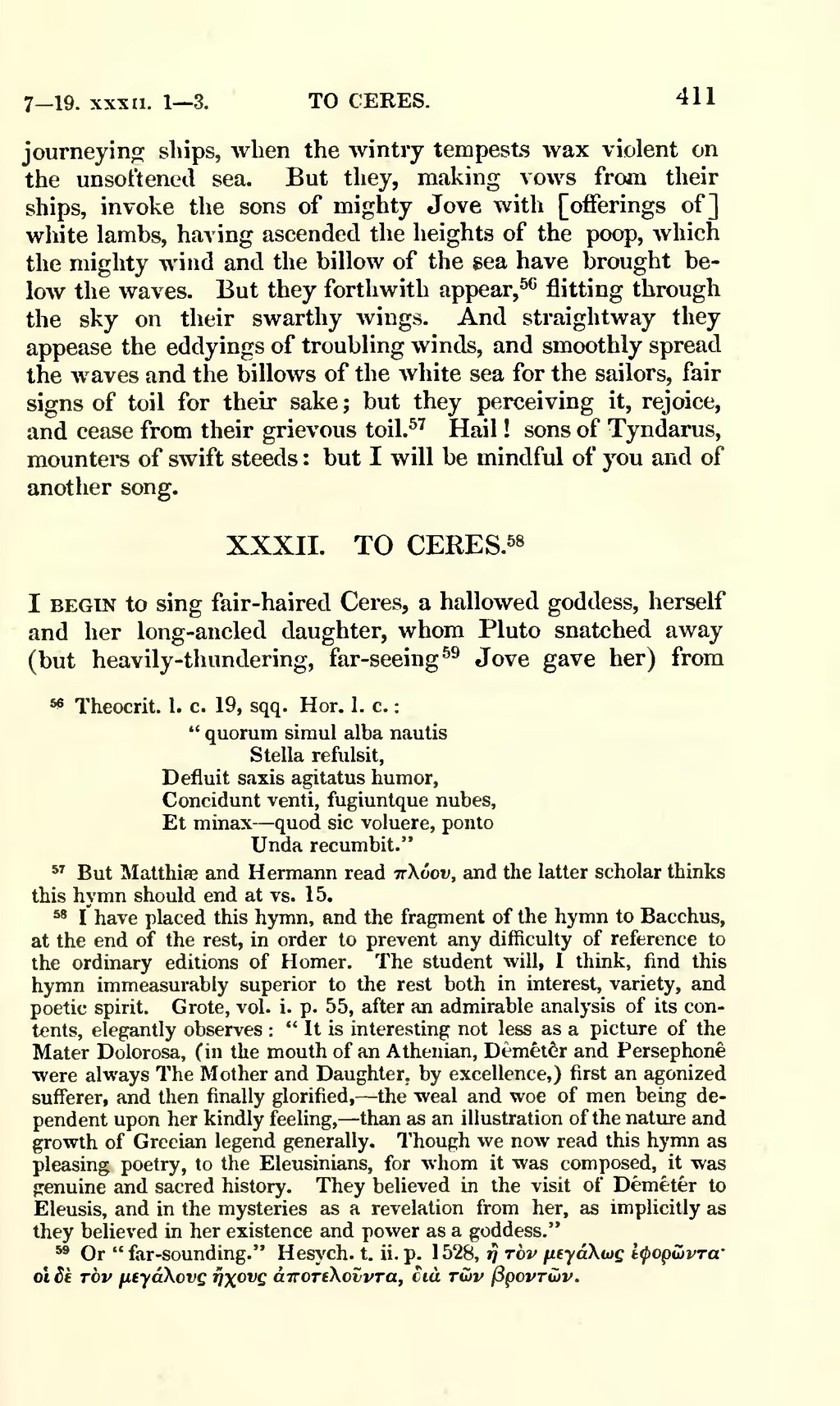journeying ships, when the wintry tempests wax violent on the unsoftened sea. But they, making vows from their ships, invoke the sons of mighty Jove with [offerings of] white lambs, having ascended the heights of the poop, which the mighty wind and the billow of the sea have brought below the waves. But they forthwith appear,[1] flitting through the sky on their swarthy wings. And straightway they appease the eddyings of troubling winds, and smoothly spread the waves and the billows of the white sea for the sailors, fair signs of toil for their sake; but they perceiving it, rejoice, and cease from their grievous toil.[2] Hail! sons of Tyndarus, mounters of swift steeds: but I will be mindful of you and of another song.
XXXII. TO CERES.[3]
I begin to sing fair-haired Ceres, a hallowed goddess, herself and her long-ancled daughter, whom Pluto snatched away (but heavily-thundering, far-seeing[4] Jove gave her) from
- ↑ Theocrit. l. c. 19, sqq. Hor. l. c.:
"quorum simul alba nautis
Stella refulsit,
Defluit saxis agitatus humor,
Concidunt venti, fugiuntque nubes,
Et minax—quod sic voluere, ponto
Unda recumbit." - ↑ But Matthiæ and Hermann read πλόου, and the latter scholar thinks this hymn should end at vs. 15.
- ↑ I have placed this hymn, and the fragment of the hymn to Bacchus, at the end of the rest, in order to prevent any difficulty of reference to the ordinary editions of Homer. The student will, I think, find this hymn immeasurably superior to the rest both in interest, variety, and poetic spirit. Grote, vol. i. p. 55, after an admirable analysis of its contents, elegantly observes: "It is interesting not less as a picture of the Mater Dolorosa, (in the mouth of an Athenian, Dêmêtêr and Persephonê were always The Mother and Daughter, by excellence,) first an agonized sufferer, and then finally glorified,—the weal and woe of men being dependent upon her kindly feeling,—than as an illustration of the nature and growth of Grecian legend generally. Though we now read this hymn as pleasing poetry, to the Eleusinians, for whom it was composed, it was genuine and sacred history. They believed in the visit of Dêmêtêr to Eleusis, and in the mysteries as a revelation from her, as implicitly as they believed in her existence and power as a goddess."
- ↑ Or "far-sounding." Hesych. t. ii. p. 1528, ἢ τὸν μεγάλως ἐφορῶντα· οἱ δὲ τὸν μεγάλους ἤχους ἀποτελοῦντα, διὰ τῶν βροντῶν.
